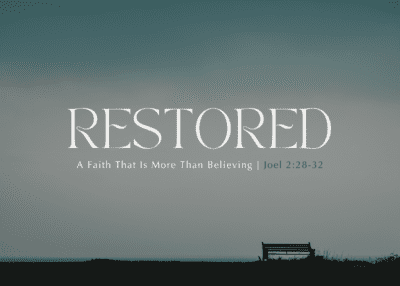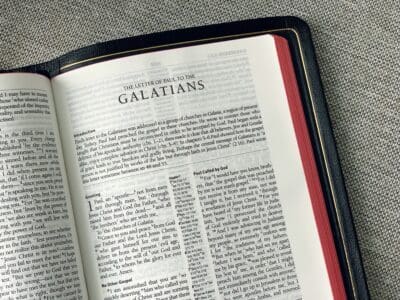The first time I thought about this question seriously was with a group of friends in the junior common room of the London Bible College. We were students who loved the Lord, and we were all studying theology. We met together for worship and prayer. We shared fellowship. We were in each other’s lives, and we were studying the Bible.
So the question naturally came up: Are we a church? If you have been involved in student leadership at a Christian college or led a campus ministry, you have probably had this discussion. It isn’t a simple question to answer.
What Did Jesus Mean by “Church”?
If three Christians meet at a bus stop every morning, are they a church? What if they talk about the Bible on the train or at Starbucks? Is your small group a church? And if not, why not?
A growing number of Christians have the idea that “church” is simply the plural of “Christian.” They feel that any group of Christians meeting at any time or place is a church.
Are they right?
What does the word “church” mean on the lips of Jesus? Whatever Jesus means when he uses the word “church” is what I want it to mean for me. And it’s what you want it to mean for you.
There are only two occasions in all of the four Gospels where the word “church” occurs. Our Lord said the word “church” twice and used it in two ways:
- All believers in every time and place
- A local congregation of believers, called out by God to worship, and sent out by God to serve
All Believers in Every Age and Place
And I tell you that you are Peter, and on this rock I will build my church and the gates of Hades [hell] will not overcome it. (v. 18)
The first time Jesus used the word “church” is well-known. Peter has just confessed that Jesus is the Christ, the Son of God, and Christ says to him, “I will build my church” (v. 18).
The church that Christ is building has to refer to all believers in every age and in every place, because there is only one. “My church” is singular! It encompasses all Christians.
Christ is not speaking here about a local church like The Orchard, which is only one church among many. Our Lord isn’t speaking about the Baptists, the Methodists, the Lutherans, or the Catholics. He speaks here about all believers in every age and in every place.
There is one Church and Christ says, “I build it.” Believers in Christ from every time, every place, and every culture are one, whatever brand of church they belong to. The New Testament makes this emphasis time and again. There is one body in the Lord.
The Local Congregation
If your brother sins against you, go and show him his fault, just between the two of you…But if he will not listen, take one or two others along…If he refuses to listen to them, tell it to the church… (Matthew 18:15-17)
The second time Jesus spoke about the Church, he’s talking about a dispute between two believers. So this cannot mean, “Tell it to all believers in every age and in every place.” That’s impossible! Nobody could do that. Jesus is clearly speaking about a local congregation of believers.
In his book of essays, Alan Stibbs points out that when you see a thin crescent in the sky, nobody says, “There’s part of the moon.” We say, “There’s the moon” (234).
The visible part is genuine moon, and it is more, it is actually—though to us invisibly—united with all the rest of the moon. Similarly, a local Christian congregation is genuine church become visible. It is “body of Christ” and invisibly one in him with the whole of his body.
A local Christian congregation is called by God to worship and sent out by God to serve. The Greek word for church that Jesus uses is ekklesia, which means “called out.” God says, “Call the people out to worship! Call them out to hear my Word, so they learn to revere me.” God’s people in the Old Testament were not only called out by God to worship, they were sent out by God to serve:
I will make you a light to the nations that you may bring my salvation to the ends of the earth. (Isaiah 49:6)
The Privilege of Belonging to the Church
If you belong to Jesus Christ, you are part of the community drawn from every culture, every place, and every generation. God has released you from the tyranny of sin and death and hell. He has set you free in a new exodus, through Jesus Christ.
He has called you out, and he has brought us together so that on the ground, where you are sitting right now, there may be a community of people who declare the praise of Jesus Christ.







